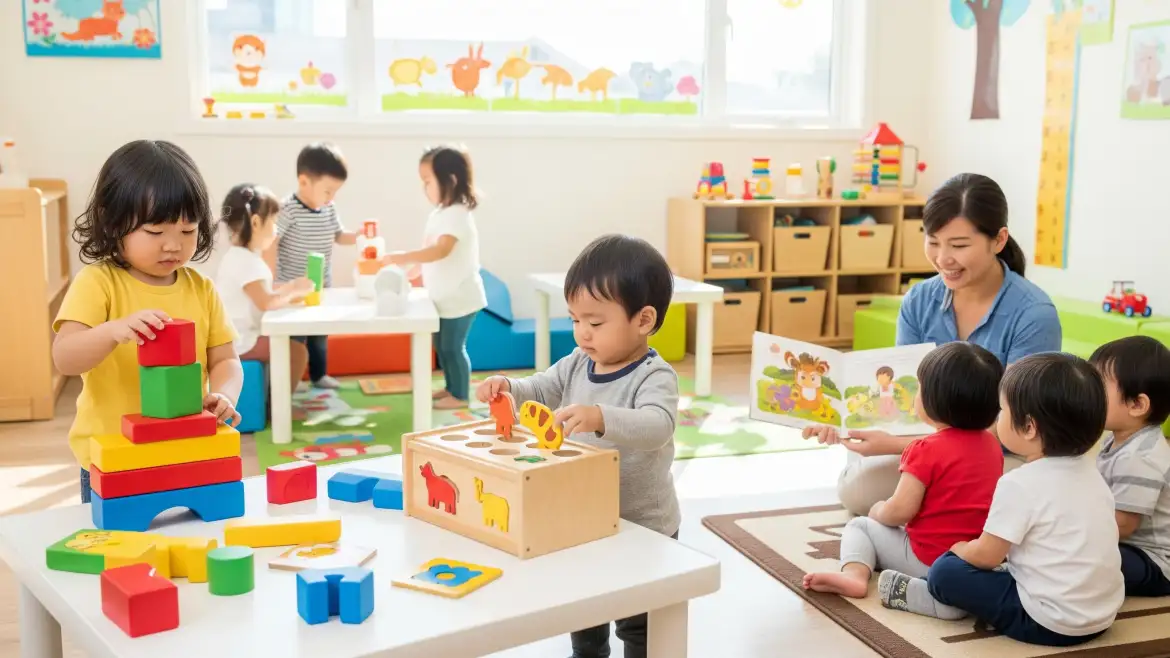The pre nursery age is one of the most exciting milestones in your child’s early years. Usually between 2 and 3 years old, this stage is where toddlers take their first steps into structured learning environments. For parents, it is a time filled with questions: Is my child ready What will they learn How do I choose the right program
Unlike later schooling, the pre nursery age is not about academics. Instead, it focuses on building curiosity, independence, and social skills through play and exploration. Think of it as a gentle bridge between home life and the bigger world of school.
In this article, we will explore 10 important things every parent should know about the pre nursery age from readiness signs to multicultural considerations so you can feel confident in guiding your little one through this exciting chapter.
1. Understanding the Pre Nursery Age
At its core, the pre nursery age refers to children who are about 2 to 3 years old. It is the stage before formal nursery or kindergarten designed to gently introduce structure, routine, and social interaction. According to Wikipedia on Preschool Education, early childhood programs during this age focus more on play and exploration rather than academics.
This stage is about discovery helping children feel safe, confident, and eager to explore rather than rushing into formal academics.
2. Global Perspectives on the Pre Nursery Age
The pre nursery age varies slightly depending on cultural and educational systems
- Singapore Pre nursery starts at age 2 with nursery following at 3
- India Many schools require children to be at least 2 years old by March 31 for pre nursery entry
- United States and Europe Some childcare programs begin as early as 18 months while structured preschool often starts closer to age 3 or 4
These differences show there is no perfect rule. What matters is your child’s readiness and comfort. For more guidance, you can read about choosing the right nursery age.
3. Signs Your Child Is Ready for Pre Nursery

The pre nursery age does not look the same for every child. Some toddlers are ready earlier while others take more time. Here are common readiness signs
- Can use simple words or gestures to communicate
- Shows curiosity about other children
- Can be apart from parents for short periods
- Demonstrates basic motor skills like walking, climbing, or stacking blocks
- Follows simple instructions such as put the toy in the box
Remember, the pre nursery age is about supporting children where they are not comparing them to others.
4. Role of Parents at Home

Even during the pre nursery age, parents remain the strongest influence. At home, you can prepare your child by
- Storytelling and reading together to spark imagination
- Singing and rhymes to build memory and language
- Playtime with puzzles and blocks for problem solving
- Consistent routines to build security
- Encouraging independence through simple tasks like tidying toys
Parents do not need to turn home into a classroom. Daily interactions during the pre nursery age already provide powerful learning opportunities.
5. Inside the Pre Nursery Classroom
What happens inside a classroom during the pre nursery age A lot of playful learning. Children typically experience
- Structured play like painting, building, or water activities
- Circle time with songs, storytelling, and group sharing
- Music and movement for self expression
- Outdoor play for physical development
- Life skills practice such as washing hands or tidying up
Teachers during the pre nursery age provide emotional comfort while guiding children through new experiences.
6. Helping Your Child Transition Smoothly
Adjusting to school for the first time can feel big. At the pre nursery age, transitions are easier when parents
- Visit the school together before classes start
- Begin with shorter hours and increase gradually
- Keep goodbyes calm and brief
- Allow children to bring a comfort toy or blanket
- Communicate with teachers regularly
The pre nursery age is a time of learning for both parents and children. Patience and routine make all the difference.
7. Language and Multicultural Considerations
Language development blossoms during the pre nursery age. For bilingual or multilingual families, this is an especially rich time
- Exposure to multiple languages improves problem solving and flexibility
- Parents can speak their strongest language at home while children learn another at school
- Mixing languages at first is normal at the pre nursery age and not a cause for concern
- Multicultural classrooms expose children to diverse traditions teaching respect and inclusion
The more fun and interactive the experience, the stronger children’s communication skills become.
8. Children with Different Needs
The pre nursery age often reveals different developmental speeds. Some children may need extra support and that is okay
- Early intervention in speech or motor delays can be life changing
- Inclusive classrooms welcome children of all abilities
- Teachers may adjust routines or offer sensory friendly activities
- Parents play a vital role in sharing information and supporting consistency at home
At the pre nursery age, the focus is on nurturing strengths and helping each child thrive at their own pace.
9. Practical Factors Cost and Accessibility
When considering the pre nursery age, parents often wonder about costs and logistics
- Fees vary widely across schools with private preschools charging more than community based centres
- Some programs combine childcare and learning while others are strictly educational
- Government subsidies can make quality pre nursery education more accessible
- Location is key closer schools ease daily routines for both parent and child
While cost is a factor, the warmth of teachers and safety of facilities should guide your final choice.
10. Conclusion Embrace the Journey
The pre nursery age is not about racing ahead but about enjoying the journey. At 2 to 3 years old, children are learning independence, social skills, and curiosity through play. Parents should celebrate small milestones rather than worry about comparisons.
Remember, the pre nursery age is the start of a lifelong love for learning. With the right balance of home support and a nurturing classroom, children will build confidence that carries them into nursery and beyond.

For parents ready to explore trusted options, you can learn more or connect with us at Little Unicorn Preschool.
Frequently Asked Questions FAQ About Pre Nursery Age
1. What exactly is the pre nursery age
It refers to children between 2 and 3 years old focusing on play based learning and social skills
2. Is my child too young for pre nursery at 2 years old
Not necessarily. Some are ready at 2 while others may need more time. Readiness depends on the child’s development
3. What do children learn in pre nursery
They develop social, motor, and language skills through songs, play, and exploration not academics
4. How can I prepare my child for pre nursery
Introduce routines, storytelling, independent tasks, and short separations to build confidence
5. Are pre nursery programs necessary
They are not compulsory. Some families choose formal programs while others provide learning at home. The important part is creating a safe and stimulating environment



